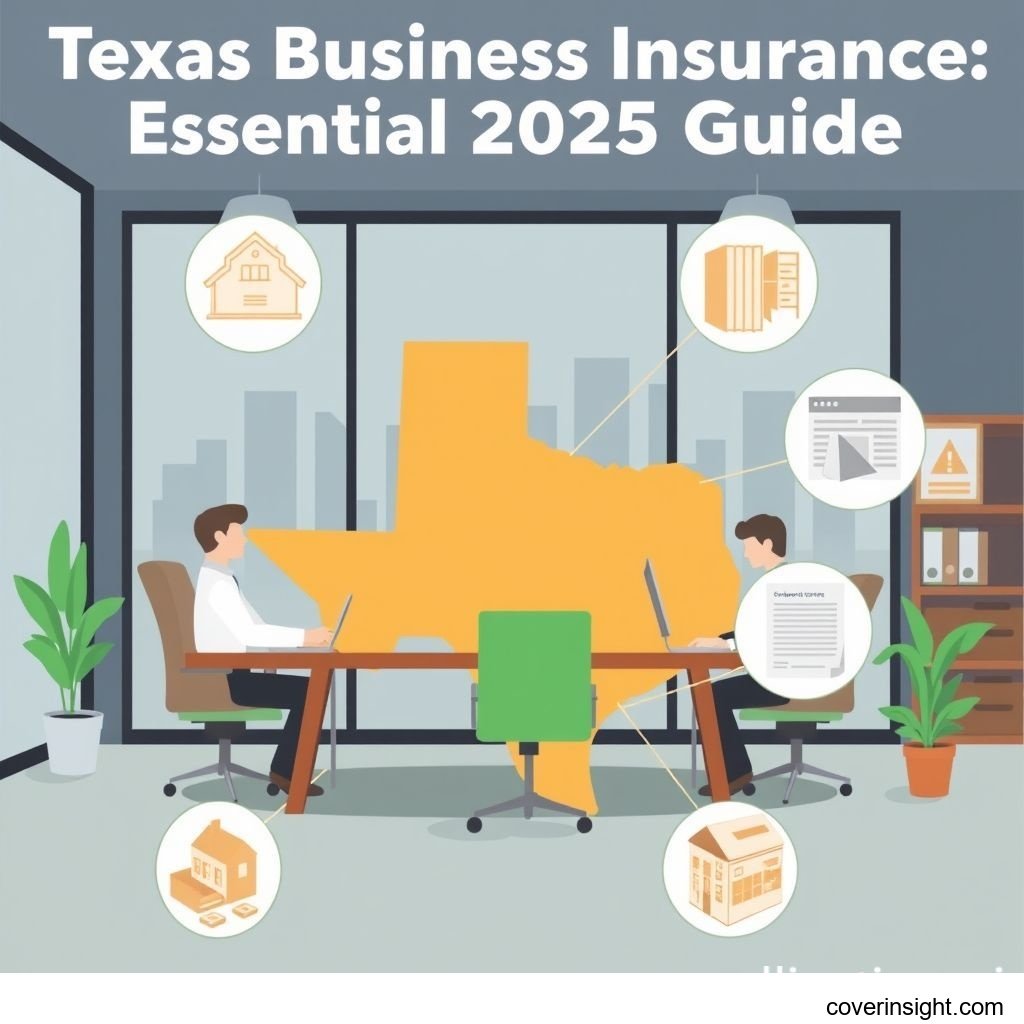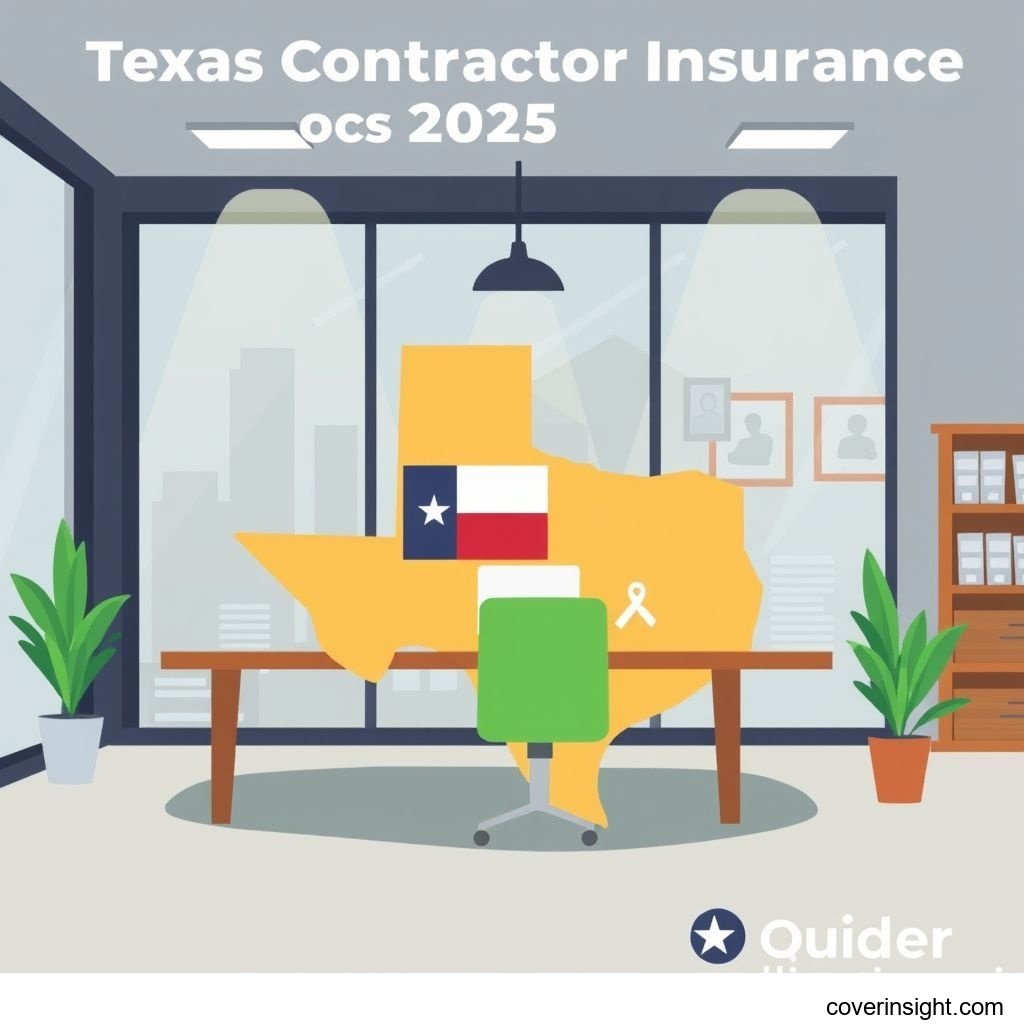Introduction to State Farm Business Insurance in Texas
As we approach 2025, the landscape of business operations in Texas continues to evolve, presenting both opportunities and inherent risks. For entrepreneurs and established companies alike, safeguarding assets and ensuring continuity is paramount. In this dynamic environment, robust commercial insurance becomes not just an option, but a critical necessity. Among the leading providers, statefarm stands out as a significant player in the U.S. insurance market, offering comprehensive solutions tailored to diverse business needs. This essential guide aims to demystify business insurance, focusing on what Texas businesses need to know to make informed decisions in the coming year, with a particular emphasis on the offerings and advantages of statefarm. Understanding your coverage options is the first step towards protecting your venture from unforeseen challenges, securing your future, and providing peace of mind.
State Farm Business Insurance Coverage Details
Navigating the complexities of business insurance can be challenging, but understanding the core types of coverage offered by statefarm is crucial. Their policies are designed to provide a safety net, protecting businesses from various liabilities and property damages. From small startups to larger enterprises, State Farm aims to deliver relevant and scalable solutions.
What’s Included
A typical statefarm business insurance policy can be highly customizable, combining several key coverages to create a comprehensive shield for your operations. These often include:
-
Commercial General Liability (CGL): This foundational coverage protects your business from claims of bodily injury or property damage that occur on your premises or as a result of your operations. It can cover legal defense costs and settlements.
-
Commercial Property Insurance: Safeguards your physical assets, including buildings, equipment, inventory, and furniture, from perils like fire, theft, vandalism, and certain natural disasters.
-
Business Auto Insurance: Essential for businesses that use vehicles for operations. This covers liability and physical damage for company-owned cars, trucks, or vans, protecting against accidents on the road.
-
Workers' Compensation Insurance: (Mandatory for most Texas businesses with employees). This provides medical benefits and wage replacement for employees injured on the job, regardless of fault.
-
Business Income Insurance (Business Interruption): Offers financial protection when your business experiences a covered loss that forces a temporary shutdown. It can help replace lost income and cover ongoing expenses like rent and payroll.
-
Commercial Umbrella Insurance: Provides additional liability coverage beyond the limits of your general liability, auto, and employer's liability policies. It offers an extra layer of protection against significant claims.
Common Exclusions
While statefarm policies are broad, it’s equally important to understand what they typically do not cover. Knowing these exclusions helps businesses identify potential gaps that might require specialized policies or endorsements. Common exclusions across many business insurance policies, including those from State Farm, often include:
-
Intentional Acts: Damage or injury resulting from deliberate actions by the insured.
-
War and Nuclear Hazards: These catastrophic events are almost universally excluded.
-
Wear and Tear: Damage caused by the natural aging process or lack of maintenance.
-
Specific types of professional liability: Standard CGL policies generally do not cover claims arising from professional errors or omissions, which requires dedicated E&O insurance for consultants and other professionals.
-
Directors' and Officers' liability: Similarly, the personal liability of company leaders for wrongful acts is not covered under general policies, necessitating directors and officers coverage.
-
Punitive Damages: In some jurisdictions or policy wordings, punitive damages awarded against the insured may be excluded.
-
Damage from certain natural disasters: Depending on the region, perils like floods and earthquakes might require separate policies (e.g., flood insurance).
Understanding these exclusions allows Texas businesses to discuss tailored solutions with their statefarm agent to ensure comprehensive protection.
Key Considerations for Texas Business Owners
For businesses operating in Texas, navigating the specific state regulations and unique economic factors is vital when selecting insurance. Texas has a robust economy, but it also presents specific risks, from severe weather events to diverse industry-specific challenges. Choosing the right statefarm policy means understanding these nuances.
Specialized Coverage Needs: E&O and D&O
Many modern businesses require more than just standard general liability. Professional services firms, tech companies, and corporate entities face unique risks related to advice given, decisions made, and fiduciary duties. This is where specialized policies become indispensable.
-
E&O Insurance for Consultants (Errors & Omissions Insurance): This critical coverage protects businesses and individuals who provide professional advice or services. If a client alleges financial loss due to a mistake, oversight, or negligence in your professional service, E&O insurance for consultants can cover legal defense costs, settlements, and judgments. For instance, a marketing consultant could face a claim if an advertising campaign they designed fails to deliver promised results, leading to client losses. Without adequate E&O insurance for consultants, such claims could be financially devastating. State Farm recognizes the growing need for this specialized protection across various consulting fields.
-
Directors and Officers Coverage (D&O Insurance): This type of insurance protects the personal assets of corporate directors and officers from lawsuits alleging wrongful acts committed in their capacity as company leaders. Claims can arise from various sources, including shareholder lawsuits, regulatory investigations, or even competitor actions. For example, allegations of mismanagement, breach of fiduciary duty, or misrepresentation could lead to costly litigation. Directors and officers coverage is crucial for attracting and retaining qualified board members and executives, as it mitigates their personal exposure to such risks. Statefarm offers this specialized protection, understanding its importance for corporate governance and stability.
Importance of Risk Assessment
Before securing any policy, conducting a thorough risk assessment is paramount. This involves identifying all potential threats to your business, both internal and external. A proactive approach helps determine the appropriate types and levels of coverage required.
-
Identify Operational Risks: What are the daily hazards associated with your business activities? (e.g., operating machinery, handling sensitive data, interacting with the public).
-
Assess Property Risks: What natural disasters are common in your Texas location? Is your property vulnerable to theft or vandalism?
-
Evaluate Liability Exposures: Do you employ many people? Do you offer professional advice? What are the potential legal liabilities?
-
Review Supply Chain Vulnerabilities: How reliant are you on specific suppliers? What happens if they face disruption?
Working with a statefarm agent during this assessment can provide valuable insights, leveraging their expertise to identify risks you might overlook. This collaborative approach ensures your policy is truly tailored to your specific situation, providing optimal protection without unnecessary expenses.
Cost Analysis of State Farm Business Insurance
Understanding the factors that influence the cost of business insurance is vital for budgeting and making informed decisions. While statefarm offers competitive rates, premiums are not one-size-fits-all. They are carefully calculated based on a multitude of variables unique to each business.
Price Factors
Several key elements contribute to the overall premium of your statefarm business insurance policy:
-
Industry and Business Type: Some industries inherently carry more risk than others. A construction company, for instance, typically faces higher premiums than a consulting firm due to greater physical risks. The scope of your operations also plays a role.
-
Location: Geographic location within Texas affects premiums due to varying risks like crime rates, property values, and susceptibility to natural disasters (e.g., coastal areas may have higher windstorm premiums).
-
Number of Employees: More employees generally mean higher workers' compensation and general liability exposure, influencing costs.
-
Claims History: A business with a history of frequent or large claims will likely face higher premiums compared to one with a clean claims record. Insurers view past claims as indicators of future risk.
-
Coverage Limits and Deductibles: Higher coverage limits provide more protection but increase premiums. Conversely, choosing a higher deductible (the amount you pay out-of-pocket before insurance kicks in) can lower your premium, but means more initial cost in the event of a claim.
-
Safety Measures: Businesses that implement robust safety protocols, security systems, and risk management practices may qualify for discounts.
-
Revenue and Payroll: These financial metrics are often used to calculate premiums for certain types of policies, reflecting the scale of your business operations.
Saving Tips
Reducing your business insurance costs without compromising essential coverage is achievable. Here are some strategies to consider when working with statefarm:
-
Bundle Policies: Combining multiple policies (e.g., general liability, property, and auto) with statefarm can often result in significant discounts compared to purchasing them separately from different providers.
-
Implement Risk Management: Proactively reduce potential claims by investing in safety training, installing security systems, and maintaining your property. A safer workplace reduces the likelihood of incidents, which can lead to lower premiums.
-
Increase Deductibles: If your business has a healthy emergency fund, opting for a higher deductible can noticeably decrease your annual premium. Just ensure you can comfortably afford the deductible if a claim arises.
-
Regularly Review Your Policy: Business needs change. Annually reviewing your statefarm policy with your agent ensures you're not over-insured for outdated risks or under-insured for new ones. Adjusting coverage to reflect current operations can optimize costs.
-
Maintain a Good Claims History: By minimizing claims through effective risk management, you build a positive claims history, which can lead to better rates over time.
-
Ask About Discounts: Always inquire about any available discounts, such as those for being claim-free, having a new business, or being part of certain professional organizations.
Choosing the Right State Farm Policy for Your Business
Selecting the ideal business insurance policy requires careful consideration beyond just cost. It's about finding coverage that aligns perfectly with your business's unique risks, size, and future aspirations. Statefarm offers a variety of solutions, and tailoring them to your specific needs is paramount.
Steps to Secure Your Policy
The process of obtaining business insurance with statefarm is straightforward, designed to guide you efficiently towards adequate protection.
-
Assess Your Needs: Begin by clearly defining your business operations, assets, number of employees, revenue, and potential liabilities. This initial assessment helps identify the types of coverage you absolutely need, such as general liability, property insurance, or specialized E&O insurance for consultants.
-
Gather Information: Have readily available details about your business, including its legal structure, industry classification, annual revenue, payroll figures, property details, and any past claims history. The more precise your information, the more accurate your quote will be.
-
Consult with a State Farm Agent: This is a crucial step. A dedicated statefarm agent can provide invaluable expertise, helping you understand complex policy language, identify hidden risks, and recommend the most suitable coverage combinations. They can also explain the nuances of policies like directors and officers coverage.
-
Compare Quotes and Options: While focusing on State Farm, it's always wise to understand the options presented. Ensure the proposed policy limits and deductibles align with your risk tolerance and budget. Don't just look at the premium; scrutinize what is actually covered.
-
Review and Finalize: Before signing, meticulously review the policy documents. Confirm that all agreed-upon coverages are included and that you understand the terms, conditions, and exclusions. Clarify any ambiguities with your statefarm agent.
Tailoring Your Coverage
A generic business insurance policy rarely fits perfectly. Texas businesses, with their diverse nature, often require highly customized solutions.
-
Industry-Specific Needs: A restaurant, for example, might need spoilage coverage, while a tech firm needs cyber liability insurance. Discuss these specific requirements with your statefarm agent.
-
Growth and Scalability: As your business grows, your insurance needs will evolve. Ensure your chosen policy can be easily scaled up to accommodate new employees, additional locations, or increased revenue.
-
Local Regulations: Texas has specific regulations regarding workers' compensation and other coverages. Your statefarm agent can ensure your policy is compliant with all state laws.
-
Special Endorsements: Consider adding endorsements or riders to your policy to cover specific risks not included in standard policies, such as specific equipment breakdown or unique property features.
By actively participating in the customization process, you can ensure your statefarm business insurance policy provides robust and relevant protection for your enterprise in 2025 and beyond.
State Farm Business Insurance FAQs
Understanding business insurance can raise many questions. Here are answers to some of the most common inquiries regarding statefarm business insurance.
How much does State Farm business insurance cost? The cost of statefarm business insurance varies significantly based on numerous factors. These include your industry, location, number of employees, claims history, and the specific types and limits of coverage you choose. Due to this variability, it’s impossible to provide a universal figure. The best way to determine your cost is to get a personalized quote directly from a State Farm agent.
What factors primarily affect premiums? Key factors influencing your premiums with statefarm include:
-
Industry Risk: High-risk industries generally pay more.
-
Location: Urban areas or regions prone to natural disasters can incur higher costs.
-
Business Size: Measured by revenue, payroll, or number of employees.
-
Claims History: A history of claims can increase future premiums.
-
Coverage Limits & Deductibles: Higher limits increase cost; higher deductibles decrease cost.
-
Safety Measures: Good risk management can lead to discounts.
Is business insurance mandatory in Texas? In Texas, workers' compensation insurance is generally not mandatory for private employers, though it is highly recommended. However, certain federal laws may require it for specific industries. Other types of business insurance, such as general liability or property insurance, are not legally mandated but are often required by landlords, clients, or lenders as part of contractual agreements. It's crucial for businesses to assess their individual risks and legal obligations. For more information on state regulations, you can consult resources like the National Association of Insurance Commissioners or your local State Insurance Departments.
How do I choose the right State Farm business insurance policy for my business? Choosing the right policy involves a thorough assessment of your business's specific risks and needs. Consider your industry, operations, assets, and potential liabilities. Consult with a knowledgeable statefarm agent who can guide you through the various coverage options, explain exclusions, and help you tailor a policy that provides comprehensive protection while remaining cost-effective. Don't overlook specialized coverages like E&O insurance for consultants or directors and officers coverage if your business requires them. For broader information on insurance resources, consider visiting Insurance Resources Global.
What are the consequences of operating without adequate business insurance? Operating without adequate business insurance can expose your enterprise to severe financial and legal repercussions. Without general liability, a simple slip-and-fall on your premises could lead to substantial legal fees and damages. Property damage from an unforeseen event could halt operations indefinitely if you lack coverage. For businesses with employees, failing to have workers' compensation, even if not strictly mandatory in Texas, could result in direct liability for employee injuries. Furthermore, clients, landlords, and lenders often require proof of insurance, making it difficult to secure contracts or financing. In essence, it leaves your business vulnerable to devastating losses that could lead to bankruptcy. Protecting your assets and ensuring continuity means investing in the right coverage. Explore additional U.S. insurance resources at US Insurance Home.
*(Image Alt Text: ![State Farm Agent Meeting with Small Business Owner] Image Alt Text: ![State Farm Insurance Policy Documents on a Desk] Image Alt Text: ![A State Farm Building with a Business Sign]) *








Comments